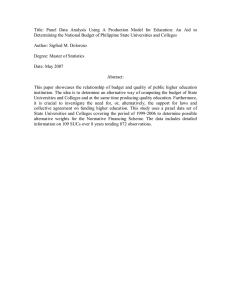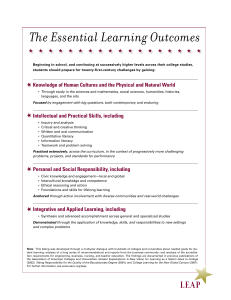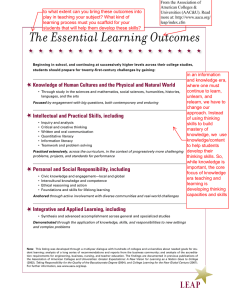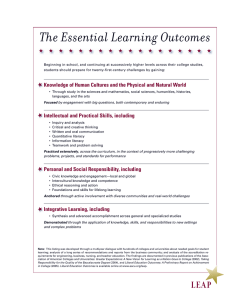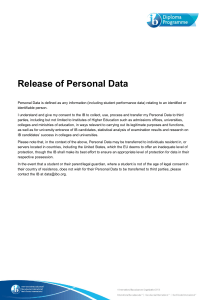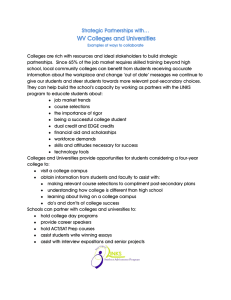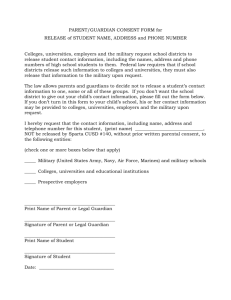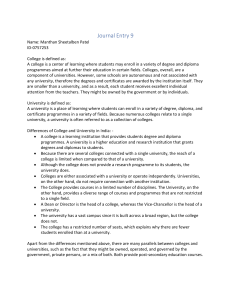2016 Allocation Framework Redesign Allocation Framework Design Principles
advertisement
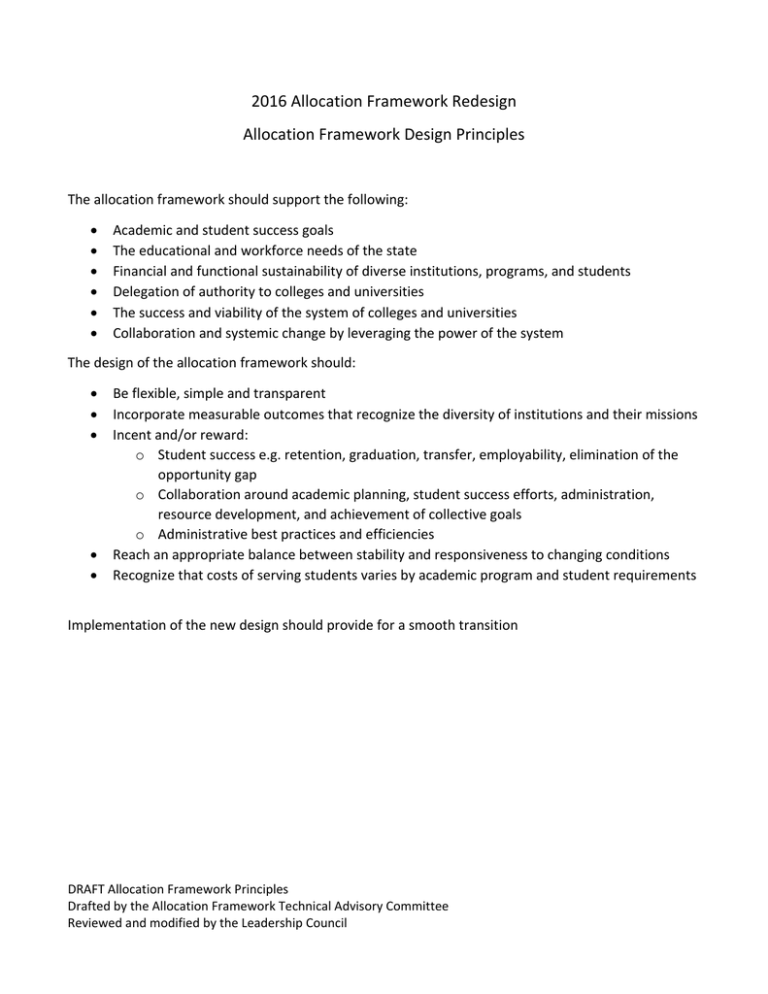
2016 Allocation Framework Redesign Allocation Framework Design Principles The allocation framework should support the following: Academic and student success goals The educational and workforce needs of the state Financial and functional sustainability of diverse institutions, programs, and students Delegation of authority to colleges and universities The success and viability of the system of colleges and universities Collaboration and systemic change by leveraging the power of the system The design of the allocation framework should: Be flexible, simple and transparent Incorporate measurable outcomes that recognize the diversity of institutions and their missions Incent and/or reward: o Student success e.g. retention, graduation, transfer, employability, elimination of the opportunity gap o Collaboration around academic planning, student success efforts, administration, resource development, and achievement of collective goals o Administrative best practices and efficiencies Reach an appropriate balance between stability and responsiveness to changing conditions Recognize that costs of serving students varies by academic program and student requirements Implementation of the new design should provide for a smooth transition DRAFT Allocation Framework Principles Drafted by the Allocation Framework Technical Advisory Committee Reviewed and modified by the Leadership Council
